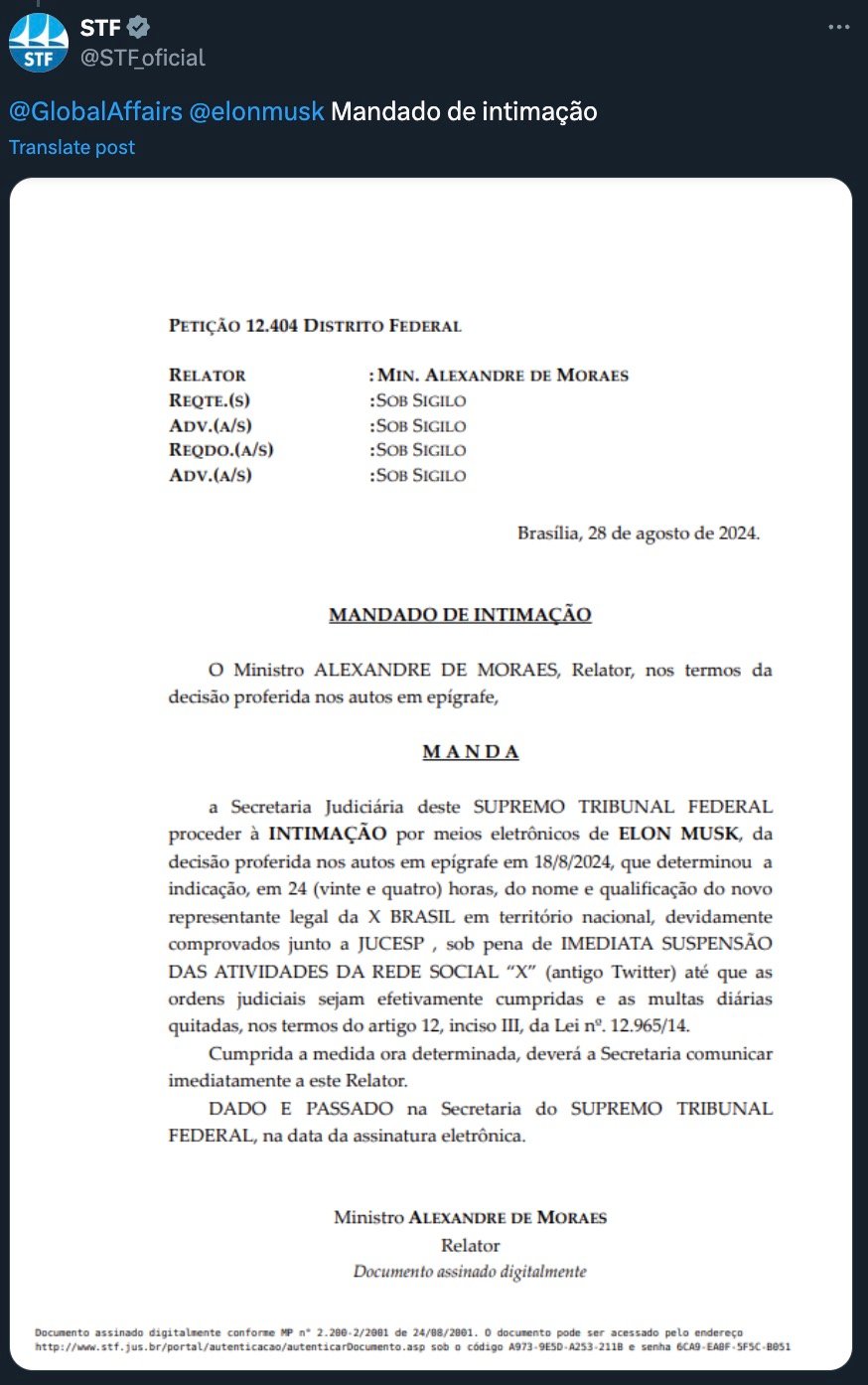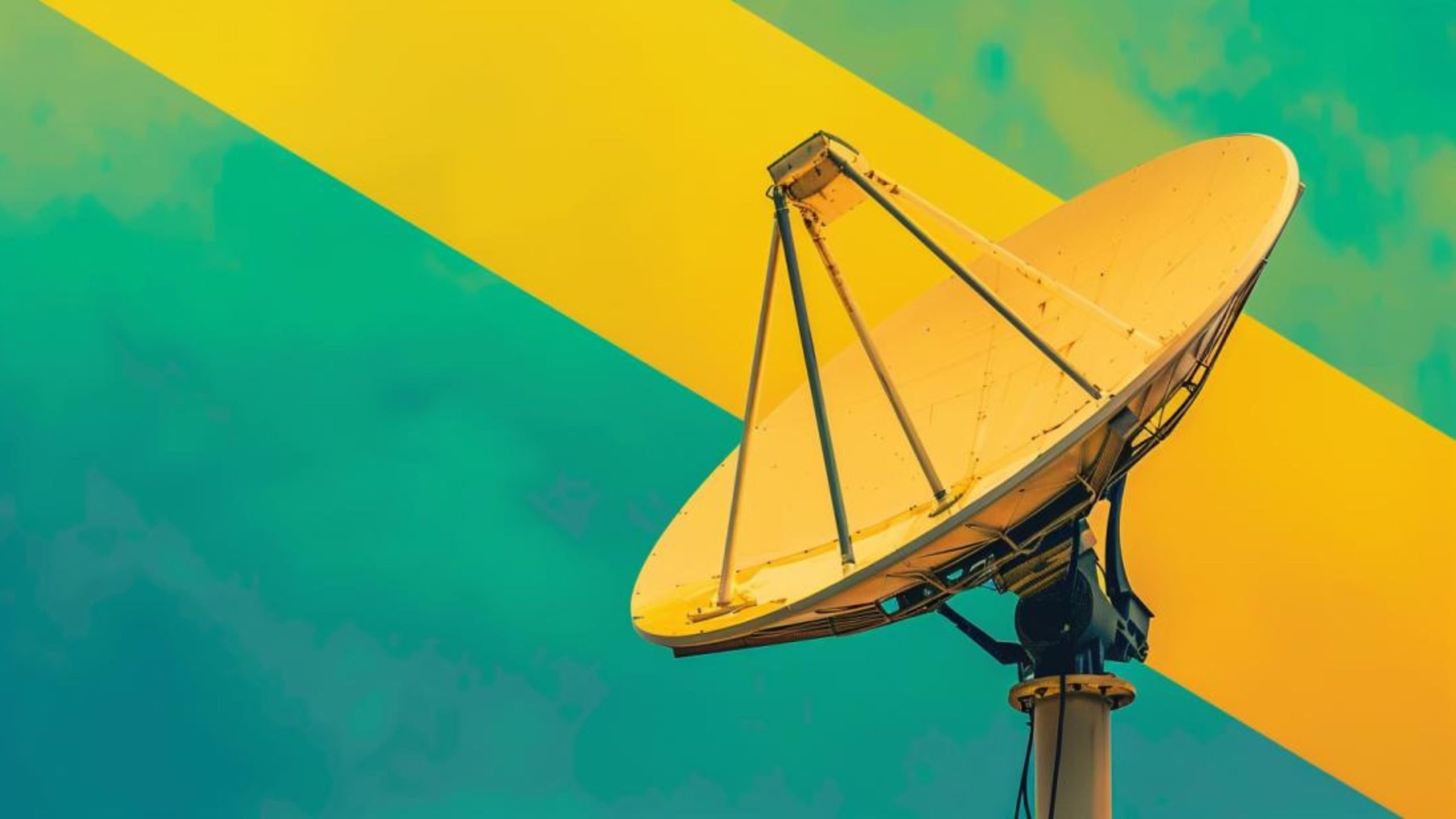Brazil’s Supreme Court has escalated the country’s retaliation against Elon Musk by freezing the financial assets of Starlink Holding, a subsidiary of Musk’s. This action is in response to another Musk company, X, which has refused to censor posts and designate a legal representative in Brazil.
This decision was part of a broader action taken by the controversial Justice Alexandre Moraes of the Supreme Court, who targeted an economic entity led by Musk. According to Brazilian media, on August 18, Moraes mandated the freezing of all financial assets of Starlink within Brazil to secure the payment of penalties levied against X by Brazilian courts.
Justice Moraes’ decision stems from the ongoing dispute involving X’s operations in Brazil. The company, under Musk’s direction, had recently shut down its Brazilian office on August 17, citing disagreements with the Supreme Court’s fines and content censorship mandates. This closure followed the court’s demand, made the day before, for X to appoint a legal representative to address these issues formally.
The lack of a legal representative prompted Justice Moraes to issue an ultimatum to the social network, giving them 24 hours to comply under threat of service suspension in Brazil. The urgency and consequences of these legal actions were communicated via a post on the Supreme Court’s X profile, directly responding to X’s announcement about the office closure to protect employees and the withdrawal of their representative.

Aside from X, Musk’s Starlink operates within Brazil, providing satellite internet services, particularly in the Northern region. The leadership of Starlink in Brazil has been informed and summoned to respond to the financial obligations imposed on X by the Brazilian judiciary.
Starlink, the satellite internet service by SpaceX, is particularly significant in Brazil for enhancing connectivity in remote and underserved regions, such as the vast Amazon rainforest where traditional broadband is impractical. This technology provides reliable internet access, supporting educational resources, digital commerce, and connectivity during natural disasters, which are frequent in regions prone to floods and landslides.
Additionally, improved internet access aids environmental monitoring efforts in the Amazon, facilitating better resource deployment against illegal activities such as deforestation and wildlife trafficking.










